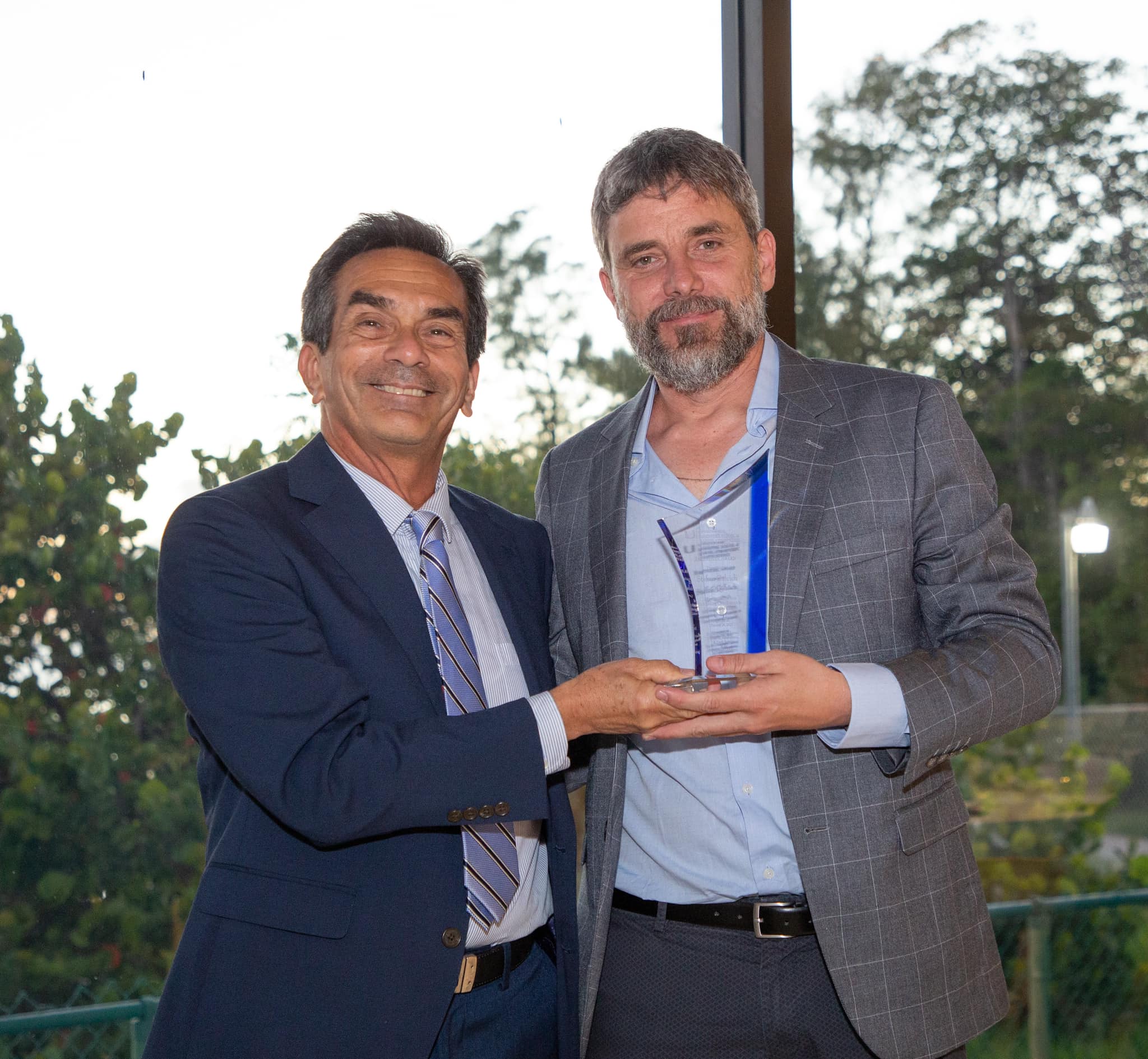
24 Oct Director of the SECOS Millennium Institute becomes the first Chilean to receive the University of Miami’s Rosenstiel Award for his contributions to the study of coastal social-ecological systems
Dr. Stefan Gelcich, marine biologist and professor at the UC Faculty of Biological Sciences, received the prestigious Rosenstiel Award in Oceanographic Sciences this past October 24. This international recognition was granted to him in 2020, but due to the pandemic, he will receive it today at the University of Miami (USA), becoming the first Chilean and the second Latin American to be honored with this award.
“It is a great honor for me to receive this distinction, which recognizes many years of research and hard work. I’ve been pleasantly surprised by the warm welcome from my colleagues here in the U.S.,” says Professor Stefan Gelcich from the University of Miami, where he is receiving the Rosenstiel Award today. The award, established in 1971, honors researchers who have had a significant and growing impact in their field over the past decade.
Gelcich, a marine biologist from the Universidad Católica del Norte and Ph.D. in Renewable Natural Resource Management from the University of Wales (UK), has published over a hundred articles in high-impact international journals, covering interdisciplinary topics spanning social, natural, and socioeconomic sciences. From the beginning of his career, he has focused on studying the interaction between ecological and social systems in coastal zones, the conservation and sustainable management of marine resources, and the analysis of public policies aimed at managing natural resources.
Currently director of the Millennium Institute for Coastal Socio-Ecology (SECOS) and researcher at the CAPES center, Gelcich is renowned for his analyses of exclusive rights systems granted to artisanal fishers, co-management systems for fisheries and marine resources, and for his contributions to the knowledge, theory, and methods for studying socio-ecological systems with a focus on coastal areas.
Upon receiving the award, the professor delivered a speech focusing on the progress and experiences in the study of socio-ecological systems. “This effort to advance interdisciplinary research that integrates ecological and social systems acknowledges the work that I, along with colleagues and the communities I’ve collaborated with, have been pushing forward to contribute to the sustainability of coastal areas from a small-scale biological and human perspective,” he said during the ceremony.
From the Millennium Institute SECOS, Gelcich explains that his goal is to deepen the study of these coastal socio-ecological systems in the medium and long term. “We have a strong team committed to the co-production of knowledge and solutions for sustainability. Our approach combines scientific research with engagement from social organizations and public entities, which bring both traditional and institutional knowledge that are essential for answering complex questions about the coast and its future,” says Gelcich.
In line with this, one of his latest studies—recently published in the journal Nature Food—addresses the need to advance justice and equity in the use of marine resources and in the fairer distribution of their benefits. “It’s a major challenge to move toward justice and equity in fisheries,” he explains. “To do so, we must recognize the diversity of actors, activities, and products in small-scale fisheries and aquaculture, because we need these efforts to contribute to better access to food and to the benefits they provide for the diets of millions of people around the world, and certainly in Chile,” he adds.
Thus, Gelcich—also co-founder of the Fundación Capital Azul—received the award from Dr. Roni Avissar, Dean of the Rosenstiel School of Marine, Atmospheric, and Earth Science at the University of Miami. The Rosenstiel Award has previously been granted to researchers such as Klaus Wyrtki, known for his studies and forecasts on the El Niño current; Pete Mumby, an ecologist recognized for his contributions to marine conservation policies; and James E. Lovelock, meteorologist and environmentalist, best known as the main proponent of the Gaia Hypothesis.





